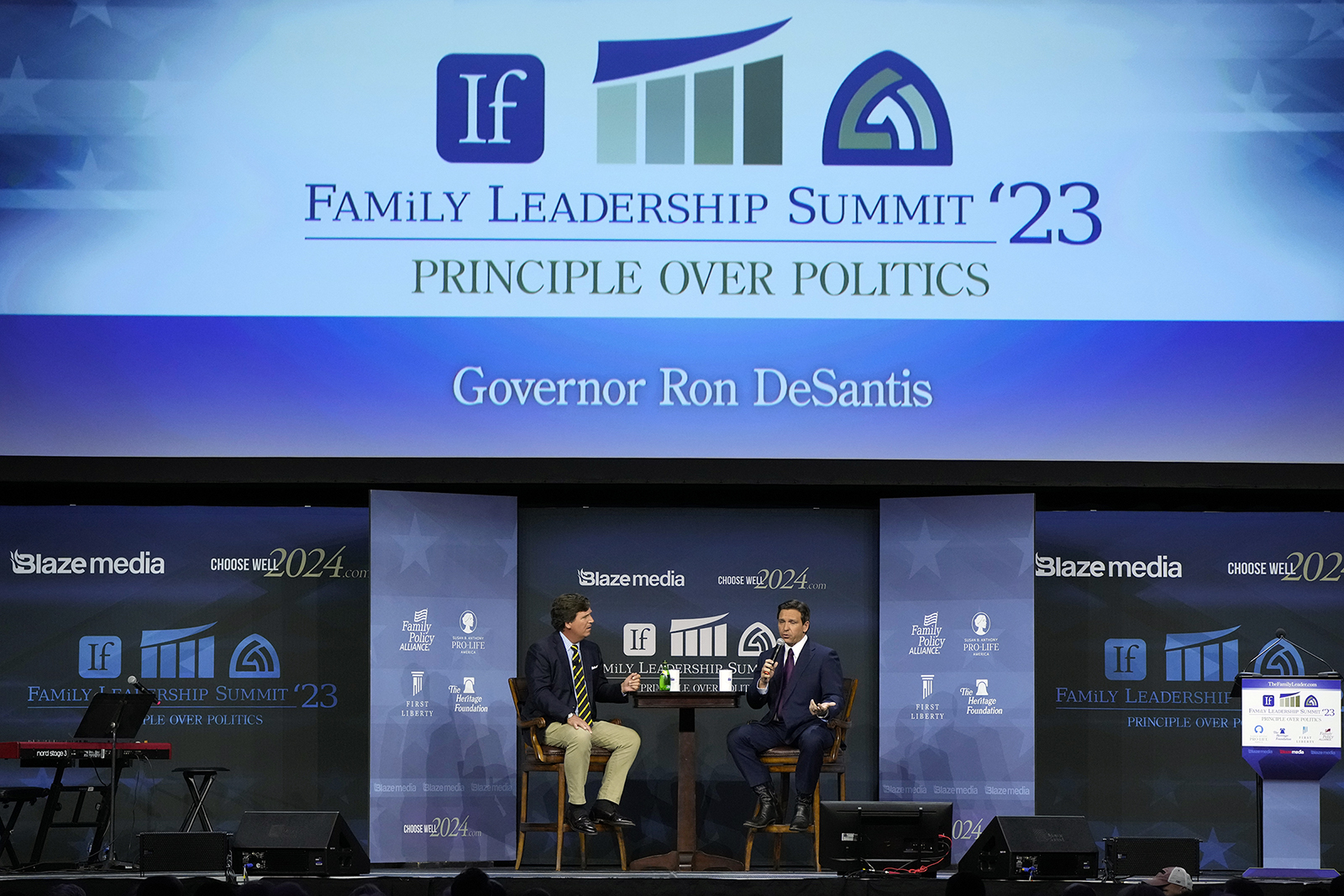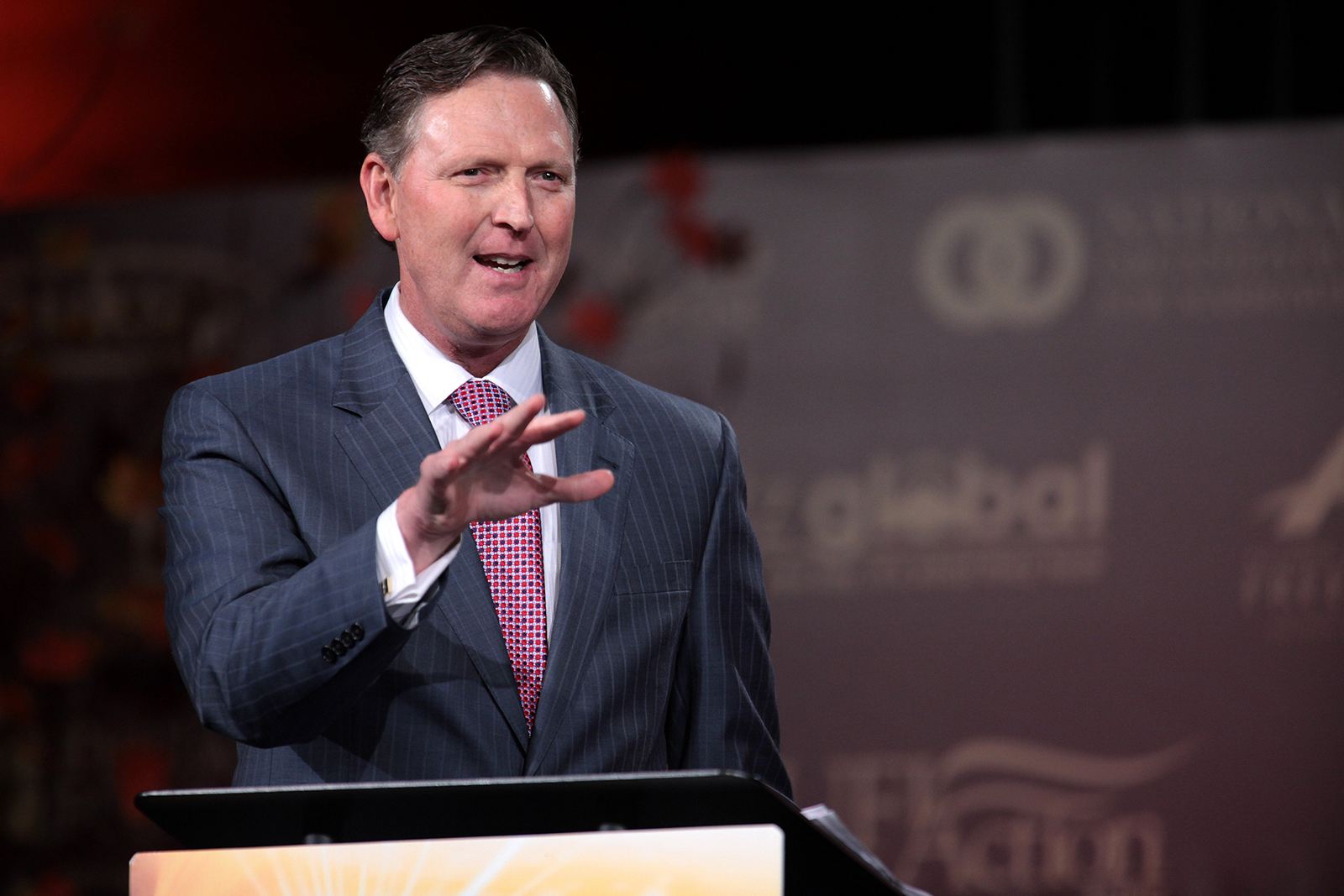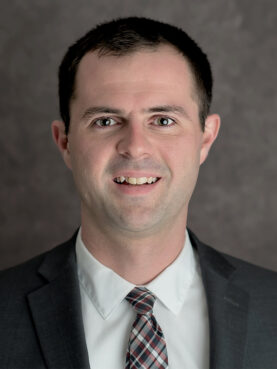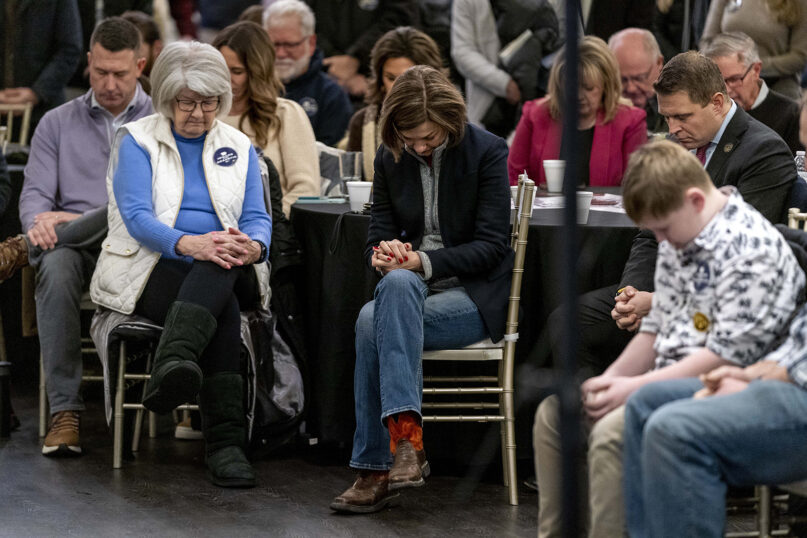(RNS) — The drive between Eastern Illinois University, where Ryan Burge teaches political science, and Mt. Vernon, Illinois, where he is pastor of a small Baptist church, takes a little more than an hour and a half. Given his two professions, Burge spends a lot of time while commuting across downstate Illinois’ flat, green expanse thinking about religion and elections.
Among the things Burge says he has learned: Faith for most people matters in the pews and, for some, in day-to-day life. But in the voting booth, politics is king.
“Partisanship is the strongest predictor of vote choice,” said Burge. “It was that way in the 1950s, and it’s that way today. Religion does not matter nearly as much as people think it does.”
As an example, Burge pointed out that when the 2024 presidential campaign season begins in earnest with the Iowa caucuses on Monday (Jan. 15), evangelical Christians are likely to be as faithful to the Republican Party as they have for the past few decades. But with evangelical leaders wielding less influence than they have in the past, their choices are going to be driven primarily by their identification as Republicans, not their faith connections.
Evangelical support in Iowa has played a key role in boosting past candidates, notably George W. Bush in 2000. But Bush was the last Republican launched by Iowa Republicans all the way to the White House. Mike Huckabee, the former Arkansas governor and Southern Baptist preacher, won in 2008. Rick Santorum, a conservative Catholic favored by evangelicals, won in 2012, as did Ted Cruz, son of an evangelical pastor. But Ron DeSantis, the candidate backed this year by the leader of a prominent evangelical group, is trailing badly in the polls.
Michael Wear, a former official in the Obama faith-based office and author of the forthcoming “The Spirit of Our Politics,” while past Republican presidential candidates would come to events seeking the approval of evangelical leaders, evangelicals are now seeking the approval of conservatives.

Republican presidential candidate Florida Gov. Ron DeSantis speaks with moderator Tucker Carlson, left, during the Family Leadership Summit, Friday, July 14, 2023, in Des Moines, Iowa. (AP Photo/Charlie Neibergall)
Wear pointed to a 2023 candidate forum hosted by The Family Leader, a prominent Christian group in the state. Rather than have an evangelical leader or pastor interview candidates at its Family Leadership Summit, organizers invited former Fox News host Tucker Carlson to play that role. “It shows evangelicals playing for conservative acceptance, as opposed to Republicans playing for evangelical acceptance,” Wear said.
Bob Vander Plaats, president of The Family Leader, long described as Iowa’s evangelical kingmaker for his role in backing Huckabee, Santorum and Cruz, is backing Ron DeSantis this year. The Florida governor trails Trump by more than 35 percentage points, according to FiveThirtyEight.
In a recent op-ed for the Des Moines Register, Vander Plaats argued that while Trump is a friend, his candidacy is doomed. “While Trump could very well win the primary, the system and the sheer number of Trump haters will never allow him to win the presidency,” he wrote. Iowans, evangelical or not, don’t seem to be convinced.
Evangelicals in Iowa and beyond may simply be seeing the downside of their alliance with the Republican Party. In the late 1990s, legendary religious right leaders Paul Weyrich, a co-founder of the Council for National Policy, Gary Bauer, then president of the Family Research Council, and Southern Baptist ethicist and activist Richard Land pushed Republican leaders to deliver on promises made to evangelicals when they came on board as the moral majority in the late 1970s.
These ’90s leaders were angry that their support for Republicans hadn’t led to many results on issues like abortion. “The go-along, get-along strategy is dead,” Land, then president of the Ethics and Religious Liberty Commission of the Southern Baptist Convention, told The New York Times in 1998. “No more engagement. We want a wedding ring, we want a ceremony, we want a consummation of the marriage.”
Those promises would eventually be cinched by Trump, who as president delivered the Supreme Court conservative majority that spelled the end of Roe v. Wade, long an evangelical goal. Some evangelicals thought the cost was too high. Trump, a twice-divorced reality TV star, shared few of their beliefs, and they bridled at his caustic rhetoric.

Bob Vander Plaats speaks at the 2015 Presidential Family Forum, hosted by The Family Leader, at the Iowa Events Center in Des Moines, Iowa. (Photo by Gage Skidmore/Flickr/Creative Commons)
But by 2023, faith-based politicos like Vander Plaats are finding the wished-for marriage didn’t put them in charge. Christian leaders who oppose Trump on ethical grounds now often find themselves exiled from fellow believers who more than ever want to vote for their man, not their spirituality.
Burge speculated that many evangelical leaders treat Trump as some mainstream Republicans in Congress do: back him in public, afraid of the consequences of opposing him, while griping about him behind the scenes.
“A lot of pastors are publicly saying nothing or giving tacit approval of Trump, and then going home to their wives and saying, ‘This is stupid. I don’t want this,’” said Burge. “They are in a terrible spot.”

Ryan Burge. (Courtesy photo)
Evangelicals, however, may determine the race for second place. Former South Carolina Governor Nikki Haley, who served as Trump’s ambassador to the United Nations, “needs to get DeSantis out of this race,” said Wear. “If she comes second in Iowa, I think that will do it, and if she’s going to do that, she needs to at least hold her own among evangelicals.”
Complicating the picture further is the statistical difficulty in separating voters’ religion from their political allegiance. Some white evangelicals, especially those who aren’t churchgoers, appear to be less motivated by faith than fear about their declining influence in America, driven by demographics and cultural change, said Burge.
“In some ways what you’re seeing is the death throes of a majority religion in its final days,” he said. “And it’s not pretty.”
Brent Leatherwood, president of the ERLC, the public policy entity of the Southern Baptist Convention, suspects that Trump will win the Iowa caucuses and go on to win the Republican nomination, setting up “a replay” of the 2020 election.
“What’s ironic,” he said, “is that it seems no one really wants that.”
Leatherwood, a former executive director of the Tennessee Republican Party, said that when he became ERLC president, he pledged not to try to tell people who to vote for. Instead, he’s focused on the ethical principles that should guide Christians in politics.
He believes that voters are tired of the political, social and economic chaos and polarization of recent years and would like to see some stability in the nation’s leadership.
“They want some peace and quiet on the political arena,” he said. “Think about all the political, social, and cultural upheavals that we’ve seen over the last 15 years. The Great Recession. Obergefell. The drama of the 2016 election. COVID. Jan. 6. The end of Roe. Historic levels of inflation. That’s not even accounting for what we are seeing on the international stage.”

Brent Leatherwood speaks during the Southern Baptist Convention annual meeting in Anaheim, California, on Wednesday, June 15, 2022. RNS photo by Justin L. Stewart
It’s unlikely, he added, that any candidate will be able to deliver that, no matter their party. “I’m not sure that it is reasonable to expect calm, and no candidate has a magic wand or a set of principles or a group of advisers that he or she can call upon, to set the world at ease.”
Leatherwood said Christians ought to be wary of being closely tied to political parties or the temptation to ignore principles in favor of political gains. Instead, he said, candidates should be evaluated on their ethics and their policies.
If no candidate is fit for office, he added, evangelicals and other Christians should consider withholding their vote. “A principled abstention by a sizable enough group of voters,” he said, “would send an important message.”





